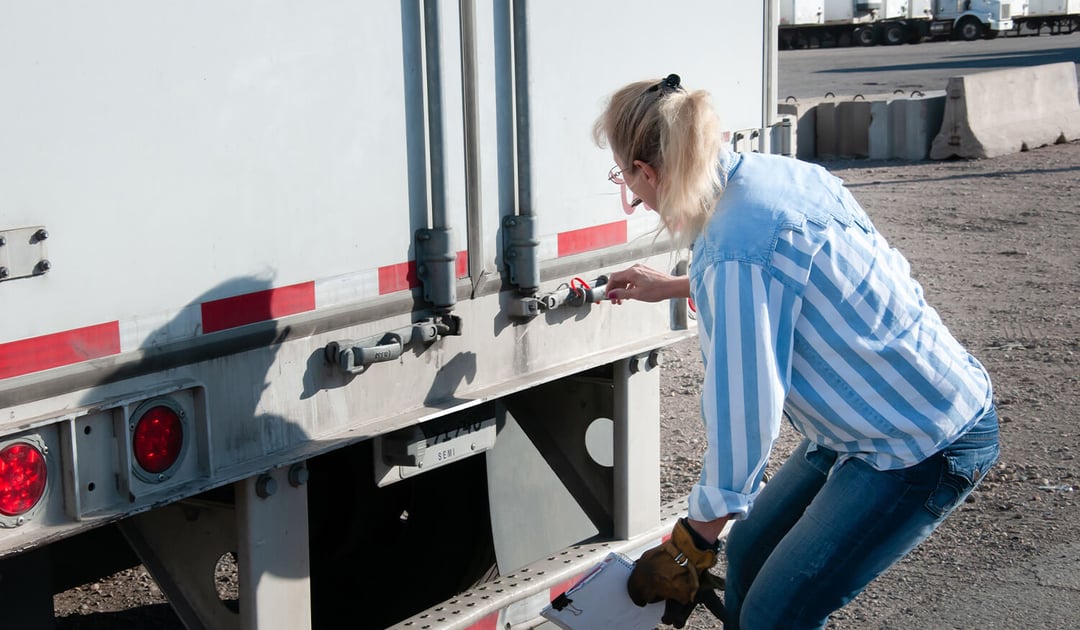Cargo theft is on the rise according to multiple recent reports, with one study showing an increase in reported freight theft of 20% in 2022 from the year prior, representing total losses of $223 million. While last year's most targeted commodities were household goods and electronics, particularly at risk of late is food and beverage freight. CargoNet's February report indicates a nearly 50% increase in this category of cargo theft over the same period last year - the second straight month of such a jump. Why? Perhaps due to inflation's somewhat disproportionate effect on food and beverages - with these items still up roughly 10% over 2022. With the dangers well-established, shippers, carriers and logistics providers are left working on ways to help prevent it and keep their cargo safe as it moves across the United States from origin to destination.
What is cargo theft?
Cargo theft is defined by the FBI as the theft of any cargo "that constitutes, in whole or in part, a commercial shipment of freight moving in commerce." Any freight mode can be subjected to cargo theft, whether trucks over the road, intermodal shipments over the railroad, ocean containers at sea or air freight. Additionally, that theft can occur at any stop before, during or after shipment at warehouses, distribution centers, terminals, ports, and even parking lots. In fact, 2022's top two targeted locations were warehouses/distribution centers, and parking lots as it tends to be easier to steal from a stationary location. Back to the FBI, the bureau estimates that all told, cargo theft costs retailers and carriers between $15 and $30 billion a year.
Where is cargo theft the worst right now?
While the region with perhaps the worst reputation for cargo theft - Los Angeles and Southern California surrounds - remains in the lead, experts see a notable (and unusual) spread across the country. Among other cities seeing well above normal issues are the port locales of Houston, Miami, Savannah and Newark, but increased activity has even been recorded at inland locations like Memphis and Chicago. Beyond that, thieves are making strategic strikes in other areas of Texas as well as Alabama and Missouri. Strategic theft when it comes to cargo incidentally, refers to scenarios in which thieves pose as legitimate carriers - either on load boards or through direct solicitations of shippers and freight brokers - to create fictitious pickups. In other words. Interestingly, while cargo theft has still been an issue in Mexico as well in the early part of 2023, the total number of robberies after two months was down by nearly a third compared to last year.
How to prevent cargo theft
While there are no perfect methods to stop cargo theft, there are certainly steps that anyone involved in shipping and logistics can take to help prevent it. Those can include:
- Using full truckload over less than truckload (LTL) when possible, as the load stays with one driver for the duration and is less likely to be opened/handled
- Utilizing intermodal when possible, as railyards are highly protected and containers can be locked securely and monitored throughout travel
- Equipping loads with tracking and security features
- Limit information on shipments to key personnel
- Properly seal/lock containers/trailers and double-check to ensure all are working
- Load high-value products toward the nose of the trailer/container whenever possible to keep them concealed and out of reach
- Use black-out stretch wrapping to conceal the contents of the product
- Don’t put identifying marks, like a company name or logo, on seals or on the outside of the trailer/container
- Ensure proper insurance is in place for all parties
In short, prevention is largely about taking logical but necessary steps to make it more difficult for thieves to both be aware of and easily access the contents of a load. Some types of cargo are easier to secure than others, but simply making an effort is often enough to keep your freight safe.
Need help preventing cargo theft for your shipments? Drop us a line and we'll get back to you with solutions for a variety of freight shipping needs - documentation or otherwise. For more information about us, or logistics and supply chain issues in general, check out our Freight Guides.



